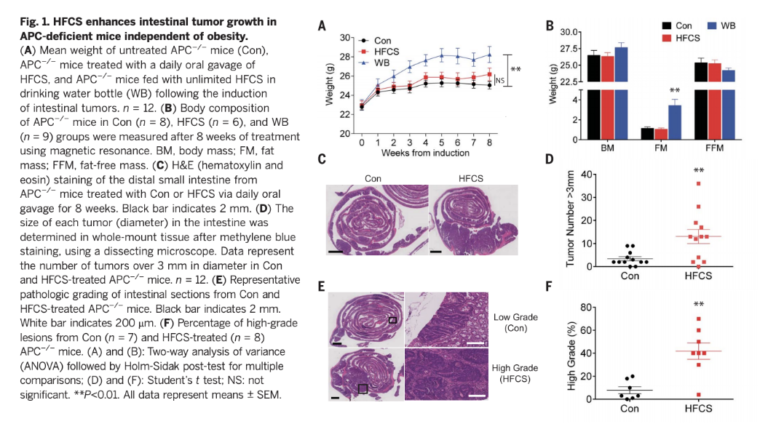In this 2019 study, mutant mice predisposed to developing intestinal tumors were given daily doses of high-fructose corn syrup (HFCS). The HFCS-treated mice showed significant increases in tumor size and tumor grade, while the tumors themselves upregulated glycolysis and fatty acid synthesis, which are both related to fructose metabolism. Authors Marcus Goncalves, et al., note, “These mouse studies support the hypothesis that the combination of dietary glucose and fructose, even at a moderate dose, can enhance tumorigenesis.”
Specifically, tumors require fatty acid synthesis (de novo lipogenesis) to build cell membranes, to generate and store energy, and for intracellular signaling. This process was upregulated in mutant mouse tumors after oral HFCS ingestion, which was confirmed by observing higher levels of fatty acid synthesis endproducts—palmitic, palmitoleic, stearic, and oleic acid—in the same tumors. All these effects were observed independent of obesity and metabolic syndrome, as the weight of HFCS-fed rats was matched to those in a control group.
The authors conclude:
Together, these findings suggest that therapeutic targeting of fructose metabolism may merit investigation as a strategy for slowing the progression of [colorectal cancer]. Our study also provides important preclinical evidence that the combination of dietary glucose and fructose, even at moderate dose, can enhance intestinal tumor growth. Whether these findings can be extrapolated to humans requires further investigation.
